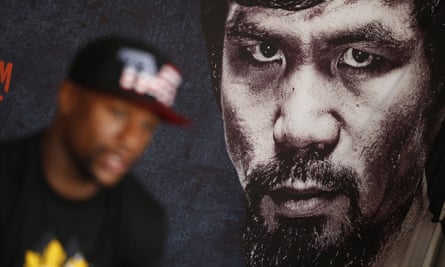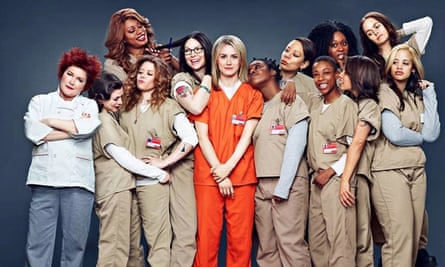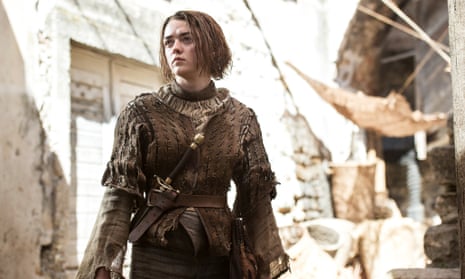Game of Thrones holds the title of the most pirated TV show in the world. Comfortably the most snaffled programme of 2012, it retained its title last year, with the fourth series’ Purple Wedding episode breaking the much-less-cool-than-it-sounds all-time piracy record. And now, the first four episodes of this series have been leaked online. So HBO must have reacted to the unveiling of live-streaming apps such as Periscope and Meerkat with a groan.
These apps allow users to stream live video from their phones directly to their Twitter feeds, viewable to any and all of their followers. Ninety-nine per cent of the time this is precisely as dull as it sounds – a panoply of fools eating cornflakes or miming poorly to Nicki Minaj. But it’s that remaining one per cent that HBO and its rivals, who invest huge sums in pay-per-view entertainment, are concerned about. Because clearly the first thing people decided to use Periscope or Meerkat for – actually, the second thing – was to watch live streams of TV that they hadn’t paid for.
Companies who pay colossal sums for broadcast rights are all preparing to feel the Periscope pinch. Sky Box Office recently paid around £3m for the privilege of exclusively screening the Mayweather-Pacquiao fight on 2 May. The senseless sums that TV companies stump up for Premier League rights are an annual staple of the back pages. Game of Thrones costs HBO something in the region of $6m an episode to produce. The ease with which they can now be live-streamed around the globe, gratis, poses a threat to these companies’ profits.
One problem: watching anything live-streamed from a phone over Twitter is an indescribably appalling experience. Jerky, pixelly, buffery (probably not a word) – it’s everything web pornography was in the early noughties. It’s the digital native’s equivalent of watching a dodgy VHS camcorder recording from Southend Odeon. Better quality HD-filming phones could change things, but for now, Twitter streams remain better suited to funny cats and gonzo journalism than big-budget entertainment.

Streaming sites on desktops remain more of a pressing concern for networks’ coffers, though often they aren’t much better to watch. Sure, it’s a doddle to hook a laptop up to a TV, but watching a juddery stream of the Manchester derby on a 46in plasma can be like squinting at a Subbuteo set at the bottom of a swimming pool full of lube. There are ads that pop up like jack-in-the-boxes stuffed with disastrous viruses, picture freezes and buffering. Everyone knows someone who claims to use a site with resplendent HD, but for most people, streaming is a pain.
So why do so many people do it? Are so many people so duck-arse tight that they’d rather compromise entertainment they claim to love so much they’re willing to break the law to get it, rather than chuck a few bob at the people who bring it to them? Well, yes and no. The ubiquitousness of the internet and the concurrent rise in piracy brought in its wake a sense of entitlement; a belief that we have a right to free entertainment.
But it also isn’t the whole story. The aforementioned Mayweather-Pacquiao fight? That’s £19.95, or $99.95 in the US if you want it in HD. Once its six-month introductory offer has expired, the cheapest Sky subscription that allows you to watch Game of Thrones is £21.50 a month. Want football with that? That’s £47. But football also shows on BT Sport, which if you don’t have BT Broadband, is another £13.50. That’s £726 annually for TV and sport.
Now TV is Sky’s non-subscription TV service, so you can watch the network’s exclusives contract-free for a reasonable £6.99 per month. But if you also want to watch Orange is the New Black in HD you’ll also be paying £6.99 a month to Netflix. Outlander on Amazon Prime will set you back another £5.99. Month-to-month, watching the TV you love legally without a subscription costs just shy of £20. Then there’s on-demand sport, which on Sky costs £6.99 a day. Yes, a day. Pubs show sport, so you could alternatively go there and nurse a pint. But in London at least, that pint will cost you around a billion pounds. It’s easy to see why people opt for inferior, cheaper options.

Network exclusives, and sheer choice, are costing cash-strapped, law-abiding consumers a fortune, and if they are expected to pay these sums then they are entitled to expect a faultless service. This is the only weapon besides the strong arm of the law that the networks have. Sky’s on-demand system is superb, and it needs to be; Amazon and Netflix’s streams are reliable and pin-sharp. The only pirate rivals to these in terms of quality are HD torrents. But networks are beginning to simulcast shows such as Game of Thrones around the world, making torrents – which need to be uploaded by pirates after broadcast – actually a slower way of watching the show than simply paying (unless they’re leaked ahead of their TV date). On-demand services also dump entire series such as Daredevil online in one go. Torrent it, or simply sign up for a free and legal 30-day trial? Your call.
So networks are making positive strides towards making nicking entertainment less attractive – in the US, HBO just launched HBO Now, a $15-a-month streaming service for customers who want to watch online, which helped to break all Game of Thrones’ previous legitimate viewing records. But as new methods of pirating material emerge, the cost of totally legit TV will seem increasingly prohibitive to your average punter.
It’s another factor added into an age-old struggle. A radically plural market creates competition between networks, resulting in an arms race. Costs rise, which are passed on to consumers (with footballers and actors tending to scoop up the cash), but meanwhile the perceived value of “content” is undermined by piracy. Networks rally by improving ease of access and cutting prices – as with the relatively cheap HBO Now – which could potentially undermine budgets and quality. And then something like illegal live-streaming comes along to disrupt everything all over again.
Until the networks get their heads around the new challenges, for many consumers, it’s quality be damned – and up Periscope.

Comments (…)
Sign in or create your Guardian account to join the discussion